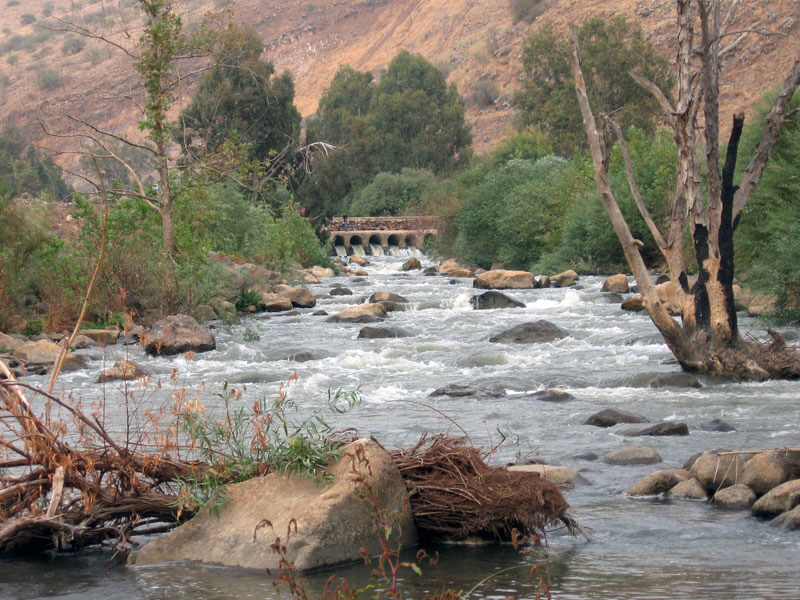Executive summary of the water chapter in the report of the Knowledge Center for Climate Change Preparation in Israel, headed by Prof. Moti Schechter from the University of Haifa, which was submitted this week to Minister Erdan

The water sector in Israel is expected to be directly affected by the expected climate changes. This is according to a report of the Knowledge Center for Climate Change Preparation in Israel, headed by Prof. Moti Shechter from the University of Haifa, which was submitted this week to Minister Erdan.
A significant reduction in the Kinneret basin is expected following a reduction in precipitation. There is already a noticeable decrease in the thickness of the sediments in the Kinneret basin. The amount of precipitation in the basin shows a high variability and ranges from 300 percent in the arid environment of the basin to 50% in the more humid areas.
In recent decades, there has been a decrease in the amount of precipitation in the feeding areas of the sources of the Jordan, which is evident due to the influence of the large springs and a decrease in the volume of water reaching the Sea of Galilee. A significant decrease in precipitation was also found in the south of the country. The changes in the nature of the precipitation and the number of extreme events will increase the floods and surface runoff and reduce the enrichment of the recharge. The gap between the natural supply of water and the demand for water will be completed by desalinizing seawater and brackish water and by increasing the treatment of wastewater and raising its quality to suit all types of agricultural crops. However, desalination and wastewater treatment require expensive use of energy, the emission of conventional pollutants and the emission of greenhouse gases, and considerations of preventing environmental pollution and contamination of water sources must also be included.
The discussion of alternatives for implementing policies in the water sector will present different strategies, methods and instruments, ranked from the most desirable to the least desirable (High Regret - No Regret).
In each strategy, the discussion was based on 3 sources:
- Research and policy documents from Israel (including a master plan for the water sector).
- Adaptation plans from around the world and literature dealing with it (15 preparation plans were discussed in detail).
- Expert opinions (steering committees, seminars, expert survey).
The expert survey includes a small number of respondents (only 18). The questionnaire contained 19 strategies whose importance the experts were asked to rate in two time frames: 2011-2019 and 2020-2050. Also, the respondents will be asked to indicate the region and the governmental level suitable for the implementation of the method.
The water chapter presents 31 main strategies for dealing with and preparing the water sector for climate change and other changes in the water sector. The strategies examined are mostly "No Regret" strategies and a minority of "Low Regret" strategies. The very accepted strategy in Israel - desalination, is a strategy defined as "High Regret". The review presents the discussion according to the "No Regret" level, from the more preferred to the less preferred strategy.
In particular, this strategy should be examined in comparison to other strategies, after the year 2013, when the existing and planned desalination facilities will provide approximately 600 milliliters of desalinated water.
The main recommendations of the water team include:
- research, information gathering, education, outreach and awareness raising;
- use of water-saving measures, leakage management and depreciation reduction;
- sewage care;
- prevention of water pollution, reclamation of wells and maintaining the quality of drinking water;
- Water-sensitive planning (WRM), and infrastructure protection;
- collecting rainwater from the surface and small catchment basins;
- gray water use;
- Effluent reuse.

6 תגובות
to the universe:
1) For many years, Turkey had good relations with Israel.
2) You don't have to buy from Turkey. There are enough countries to buy from.
Overall:
1) Even under the current conditions. With proper management, you can save huge amounts of water!
2) The water problem has existed in Israel for many years. Many solutions have been proposed by professionals. If they had implemented the solutions in time the scope of the problem would have been much smaller.
better late than never.
I wonder if the amount of water flowing into Jordan depends on the height and condition of the Kinneret.
Because Turkey is anti-Israel and even if it agrees, it can threaten and cut off at any moment. We have already learned a lesson with the gas pipeline from Egypt.
There is a decrease in flows in the north because Lebanon and Syria built dams and diverted the water that flows naturally to Israel. Which is against international law, Israel does nothing about it of course.
There are several important problems in the economy, security, education, climate and more. Thousands of articles have been written about each of these and hundreds of meetings have been held and dozens of committees have been established. There is nothing new
Because the main and most important problem for the future of this country is corruption, governmental, political and economic. Power, status, dominance are much, much more important in this type of government, than the problem of the climate, the economy, and more. The political of the anti-Zionists.
Why not transfer a water pipe from Turkey to here?